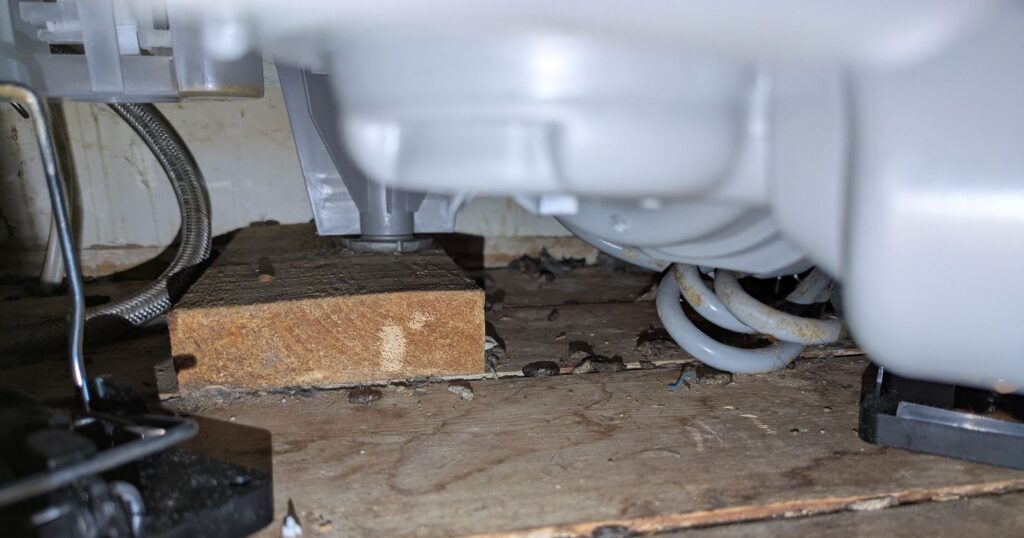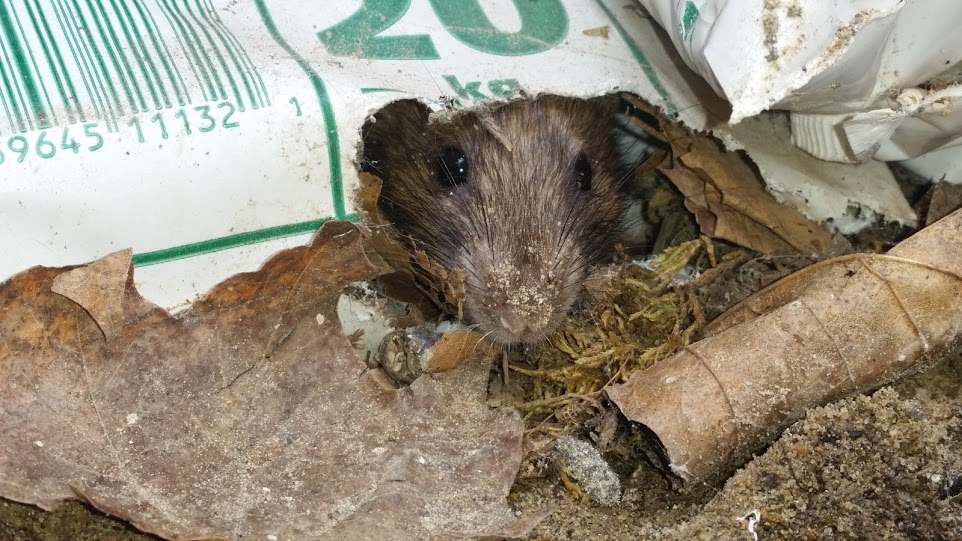Your kitchen appliances might seem like the cleanest spots in your home, but they can sometimes attract unexpected and unwelcome guests, rats. These clever animals are surprisingly drawn to dishwashers and other kitchen appliances, turning them into potential hiding spots. If unnoticed, this can lead to damage, inconvenience, and even health risks.
So, what makes dishwashers so appealing to rats? From warmth and food residue to hidden entry points, these appliances can be an irresistible target for rodents. Understanding why this happens and the potential issues it can cause is key to keeping your Mississauga home wildlife-free.
Here’s what you need to know about dealing with rats in dishwashers and safeguarding your kitchen appliances.
Why Are Rats Attracted to Kitchen Appliances?
Dishwashers and other kitchen appliances create the perfect environment for rats to thrive. But what makes these areas so attractive to them? It comes down to three key factors.
First, dishwashers provide the ideal mix of moisture for rats to survive. These appliances retain warmth and dampness after use, and even the smallest leak or lingering condensation can draw rats in. They instinctively pick up on these conditions and take advantage of them.
Second, food particles and residue are like a buffet for rats. Even when dishes look clean before being loaded into the dishwasher, crumbs or greasy residue can get trapped in filters or along edges. These tiny leftovers, though small to us, are more than enough to attract a hungry rat.
Finally, dishwashers and kitchen appliances offer dark, enclosed spaces that make perfect hiding spots. Unlike open areas in your home, these hidden zones allow rats to sneak in undetected, giving them safe access to food and water.
To make matters worse, rats have an extraordinary sense of smell, 10 to 20 times stronger than a human’s. This sharp sense helps them detect food and water from surprising distances, making it easy for them to zero in on your kitchen appliances.
The Damage Rats Can Cause to Dishwashers and Plumbing
Once rats find their way into your kitchen appliances, the real problems begin. These are not just unsightly animals scurrying around at night; they are capable of causing significant damage to your home and appliances.
Chewed Water Lines and Plumbing
A rat’s teeth grow continuously throughout its life, which means it has to chew on objects regularly to prevent overgrowth. Unfortunately, that often includes vital components of your dishwasher and other appliances, such as water lines and wiring. This can lead to:
- Leaky Pipes: When rats chew through water lines, even small holes can result in slow drips or large leaks.
- Plumbing Issues: Damaged water lines can impact water pressure or even cause backups in your dishwasher.
- Costly Repairs: Fixing a chewed water line or replacing plumbing can cost hundreds of dollars, not to mention the added stress.
Electrical Hazards
Dishwashers and many other appliances rely on wiring to function properly. Rats may damage these wires while seeking out food or nesting materials. Chewing on electrical components can lead to:
- Malfunctioning appliances
- Short circuits
- Potential fire risks
Structural Water Damage
When water leaks go unnoticed, they can lead to warped cabinets, soaked floors, and even structural damage in your kitchen. Excess moisture left behind from rat activity can further contribute to mould and mildew, creating an unhealthy environment for your family.
Ontario-based data reveals that water damage from leaks can cost homeowners an average of $3,000 per claim. Rats in dishwashers and kitchen appliances are one of the many preventable causes contributing to such expenses.

Why Rats Are Attracted to Moisture and Food Sources
To better understand the root of the problem, we need to explore what drives rats towards certain environments. Moisture and food sources play a pivotal role in their survival, but why are these factors particularly important for them?
The Role of Moisture
Rats need consistent access to water, whether from a natural source or from your plumbing fixtures. Dishwashers often provide them with:
- Condensation inside the appliance
- Residual water in hoses or drainage systems
- Leaks around water lines and seals
Their strong survival instincts push them towards kitchens because these spaces offer almost guaranteed access to moisture.
Food as Their Main Motivation
Rats are scavengers that are extremely adaptable in their feeding habits. While we may overlook tiny crumbs or grease marks, rats see these as golden opportunities. They can consume almost anything you leave behind, even particles as small as grains of rice trapped in a dishwasher filter or grease left on a pot.
Research indicates that rats eat up to 20 grams of food daily, which is roughly 10% of their body weight. With their agile movements and keen senses, almost no appliance is too difficult for them to explore.
Kitchen Appliances as Safe Havens
Beyond the food and water, appliances like dishwashers offer something just as valuable to rats: safety. Once they locate a point of entry, such as an unsecured vent or gap in a wall, they can move freely between cavities within the kitchen. These areas allow them to live and multiply while remaining hidden.

How to Recognize Signs of Rat Activity Near Your Dishwasher
It’s important to act quickly if you suspect rats are targeting your home. The following warning signs can indicate a problem:
- Chewed pipes or wiring: Look for visible damage around your dishwasher’s water lines or power cables.
- Droppings near appliances: Rats often leave small, dark droppings near areas they frequent.
- Strange odours or noises: If you hear scratching or detect an unusual, musty smell, you may have rats hiding in or around your kitchen appliances.
- Pooling water or damp spots: Unexplained moisture around your dishwasher could mean both a leak and rat activity.
If any of these signs appear, addressing the problem quickly is critical to limit further damage.
Preventing Rat Intrusions in Your Kitchen
While it’s unsettling to think of rats finding their way into your appliances, there are effective ways to protect your kitchen from these unwanted visitors. Simple preventive steps can make a big difference in keeping your space safe and clean.
- Inspect and seal gaps: Take time to examine your kitchen for any openings around pipes, vents, or behind appliances. Even small gaps can provide easy entry points. Caulking or steel wool is used to seal these areas securely and prevent access.
- Clean regularly: Keeping your kitchen tidy is key. Wipe down countertops and appliances daily, clean filters in dishwashers or range hoods, and make sure no food debris is left, especially in hard-to-reach spots. A clean kitchen leaves less for rats to be attracted to.
- Check for leaks: Moisture is a major draw. Inspect water lines, dishwasher seals, and sink connections for any drips or leaks. Fix these promptly to avoid creating a water source for rats, and ensure the area around your sink stays dry.
- Store food securely: Food left out is an open invitation. Store all food in airtight containers and avoid leaving any dishes unwashed in the sink overnight. Even crumbs or leftovers can be enough to attract attention.
By following these steps, you can create a kitchen environment that’s much less appealing to rats. With regular maintenance, thorough cleaning, and a focus on sealing off entry points, you’ll have peace of mind knowing your kitchen is well-protected.
Why Skedaddle’s Professional Help Is Essential
Even with diligent prevention, rats are resourceful creatures that can exploit your home’s tiniest weaknesses. If you suspect that rats are entering your dishwasher or other kitchen appliances, it’s important to rely on professionals for effective and humane solutions. Experts can conduct thorough inspections, identify access points, and guide you through measures to prevent future infestations.
At Skedaddle Humane Wildlife Control in Mississauga, our team understands the challenges of dealing with rats. We specialize in protecting homes and creating long-term solutions that prioritize both safety and your peace of mind.
Don’t wait until chewing damage or water leaks spiral out of control. Contact us today to safeguard your home and appliances from the threats posed by rats.



